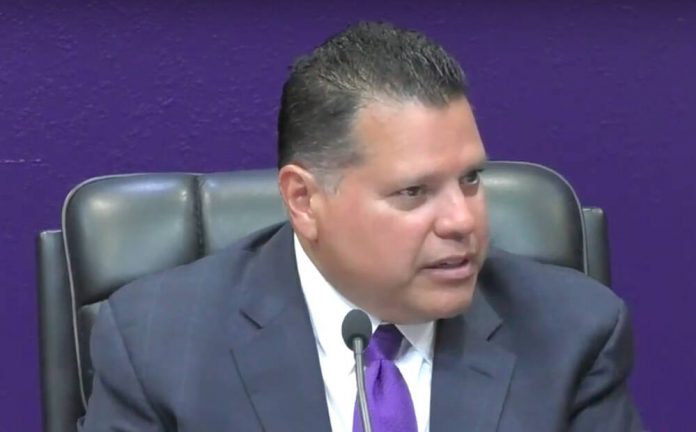Weslaco school district trustees will consider approving a $2,000 recruitment and retention stipend next week that would be paid for out of federal ESSER funds, but the move does not have the support of the district’s superintendent.
Stipends have been an especially popular choice among Rio Grande Valley school leaders during this year’s budget process, with national headlines blaring warnings about worsening staffing shortages on campuses.
Local district’s have, to a degree, been competing to keep up with each other’s stipends, although trustees and superintendents have increasingly been casting their eyes on potentially tight budget forecasts when those federal funds dry up next year.
Weslaco Superintendent Dino Coronado told The Monitor via email Wednesday that the district opted for a pay raise — the most generous recommended by a TASB study — in May in lieu of stipends, although stipends are still possible.
“Given the current situation, we may still move forward with the $2,000 Retention Stipend — it’s not off the table,” he wrote. “The cost would be about $4.7 million.”
During a board workshop Tuesday, however, Coronado said he’d recommend against moving forward with stipends and called them an outright bad idea given the district’s other financial needs and the stipend’s one-time funding source.
“I’ll be the first one to say, teachers work hard, they don’t get paid enough, we owe them more money, they deserve a higher salary. All of the above. You’ll never get an argument from me for that,” he said.
Still, Coronado said, an old fashioned salary is a better way to reward that work. He has ambitious plans for the district’s payscale, which he noted would be sustainable rather than a one-time expense.
“My goal is for us to be the first district to hit $60,000 for a zero-year teacher,” he said. “And I believe that, in my plan, that we can do it within the next five years.”
Last year’s stipends, Coronado told the board, failed to retain all employees, and he said there was a lack of guidance on who would receive additional stipends.
“I wouldn’t be worthy of a stipend,” Coronado, who joined the district in April, said. “We hired folks in June. They wouldn’t be worthy of a stipend, but we don’t have that guidance from the board.”
The $4.7 million, Coronado said, could be more advantageous to address dated HVAC equipment — another expense the board will consider next week.
“It’s gonna cost us more than what we thought. We don’t have enough money,” he said. “So now we say, ‘OK, which schools don’t get an air conditioner?’”
Still, trustees can trump Coronado’s opinion and — as he noted in the meeting — it’s an election year.





